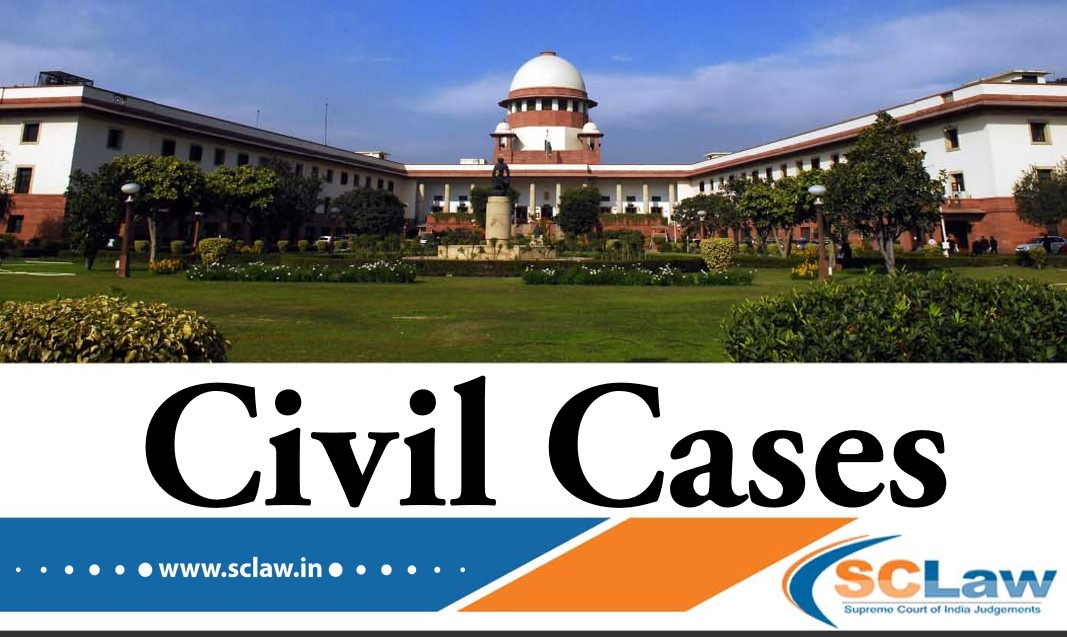Regularization of services–Daily wagers–Merely because a temporary employee or a casual wage worker is continued for a time beyond the term of his appointment, he would not be entitled to be absorbed in regular service or made permanent, merely on the strength of such continuance, if the original appointment was not made by following a due process of selection as envisaged by the relevant rules.
2010(1) LAW HERALD (SC) 589 IN THE SUPREME COURT OF INDIA Before The Hon’ble Mr. Justice V.S. Sirpurkar The Hon’ble Mr. Justice Dr. Mukundakam Sharma Civil Appeal Nos. 795-798 of…
Second Complaint–Maintainability of– Second complaint was on almost identical facts which was raised in the first complaint and which was dismissed on merits–So the second complaint was not maintainable.
2010(1) LAW HERALD (SC) 585 IN THE SUPREME COURT OF INDIA Before The Hon’ble Mr. Justice G.S. Singhvi The Hon’ble Mr. Justice Asok Kumar Ganguly Criminal Appeal No. 203 of…
Discharge–Section 227 in the new Code confers special power on the Judge to discharge an accused at the threshold if upon consideration of the records and documents, he find that “there is not sufficient ground” for proceeding against the accused.
2010(1) LAW HERALD (SC) 578 IN THE SUPREME COURT OF INDIA Before The Hon’ble Mr. Justice P. Sathasivam The Hon’ble Mr. Justice H.L. Dattu Criminal Appeal No. 192 of 2010…
Allegations that the petitioners had been beaten or an attempt had been made to extort money from them or anyone else has been denied–These prayers cannot be permitted to be raised in a writ petition directly in the Supreme Court under Article 32 of the Constitution–No violation of basic requirement as laid down in case D.K. Basu supra were infringed–Show cause notices issued to the respondents dropped.
2010(1) LAW HERALD (SC) 576 IN THE SUPREME COURT OF INDIA Before The Hon’ble Mr. Justice Harjit Singh Bedi The Hon’ble Mr. Justice J.M. Panchal Writ Petition (Criminal) No. 17…
Reservation in Panchayats–Panchayats located in Scheduled Areas, the exclusive representation of Scheduled Tribes in the Chairperson positions of the same bodies at all three tiers is constitutionally permissible–Sections 17(B)(2), 36(B)(2) and 51(B)(2) of the Jharkhand Panchayat Reservation Act, 2001 are constitutionally valid provisions.
2010(1) LAW HERALD (SC) 558 IN THE SUPREME COURT OF INDIA Before The Hon’ble Mr. Chief Justice K.G. Balakrishnan The Hon’ble Mr. Justice P. Sathasivam The Hon’ble Mr. Justice J.M.…
Narcotics–Non-compliance of S. 42(2) of N.D.P.S. Act–Acquittal upheld.
2010(1) LAW HERALD (SC) 557 IN THE SUPREME COURT OF INDIA Before The Hon’ble Mr. Justice Arijit Pasayat The Hon’ble Mr. Justice Asok Kumar Ganguly Criminal Appeal No. 957 of…
Partnership–Dissolution of–When there are only two partners constituting the partnership firm, on the death of one of them, the firm is deemed to be dissolved despite the existence of a clause which says otherwise
2010(1) LAW HERALD (SC) 548 IN THE SUPREME COURT OF INDIA Before The Hon’ble Mr. Justice Tarun Chatterjee The Hon’ble Mr. Justice V.S. Sirpurkar Civil Appeal Nos. 6933-6934 of 2002…
Dying declaration– Once the court is satisfied that the declaration was true and voluntary undoubtedly, it can base its conviction without any further corroboration–It cannot be laid down as an absolute rule of law that the dying declaration cannot form the sole basis of conviction unless it is corroborated.
2010(1) LAW HERALD (SC) 545 IN THE SUPREME COURT OF INDIA Before The Hon’ble Mr. Justice Arijit Pasayat The Hon’ble Mr. Justice Asok Kumar Ganguly Criminal Appeal No. 966 of…
Criminal Procedure Code, 1973, S. 167(2)–Criminal Procedure Code, 1973, S. 309–Criminal Procedure Code, 1973, S. 173(8)–Investigation–Investigation and re-investigation stand on different footing–Investigation into an offence completed by Police Challan submitted–Superior can order further investigation and not re-investigation–Court cannot give custody of accused to new agent for custodial interrogation.
2010(1) LAW HERALD (SC) 521 IN THE SUPREME COURT OF INDIA Before The Hon’ble Mr. Justice S.B. Sinha The Hon’ble Mr. Justice Mukundakam Sharma Criminal Appeal No. 941 of 2009…
Rape–Sentence of 7years reduced to 6 months by High Court as accused belonged to rural areas–Order set aside–This is not special reason to reduce sentence.
2010(1) LAW HERALD (SC) 541 IN THE SUPREME COURT OF INDIA Before The Hon’ble Mr. Justice Arijit Pasayat The Hon’ble Mr. Justice Lokeshwar Singh Panta The Hon’ble Mr. Justice P.…














